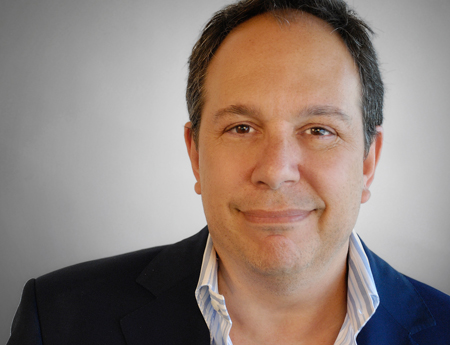Following a Calling in a Career That Produces

The smarter way to stay on top of broadcasting and cable industry. Sign up below
You are now subscribed
Your newsletter sign-up was successful
Mark Gordon had a pretty good thing going before he got into TV. With Speed, Saving Private Ryan and A Simple Plan among his credits, Gordon had, by the early aughts, established himself as one of the film industry’s premiere producers. Then one day in 2002, agent Chris Silbermann asked Gordon to lunch. Silbermann had enjoyed previous success helping film producers segue to television, and he wanted to see if the guy who did Broken Arrow might be interested in making the transition too. Gordon took the lunch. More than a decade later, that decision has proved fortuitous.
Gordon is still one of Hollywood’s top producers, but is now as well known for TV series including Grey’s Anatomy, Criminal Minds and, most recently, Ray Donovan—which premiered its second season on Showtime July 13—as for his film work.
“I got really lucky early on,” says Gordon, who calls himself “lucky” so many times in a roughly 45-minute conversation that someone listening to him might think that being a producer is just a matter of having really awesome things happen to you for no reason. But Gordon was, even before his career began, also good at knowing what he wanted out of the entertainment industry and how to get it.
A Virginia native, Gordon dropped out of Boston University following his freshman year and moved to New York. After jumping from odd job to odd job—chauffeur, hotel desk clerk, public relations assistant—he enrolled in film school at New York University, finishing the program a year early. At NYU, his sights were set on a goal that few shared.
“It was clear, at least from the time I got to school, that I had a natural aptitude as a producer,” Gordon says. In film school, he idolized Sam Spiegel and David O. Selznick. “For me, a producer was an equal creative partner in the process.”
That was not a widely held view when Gordon graduated in 1978, at the tail end of a decade dominated by a new generation of American auteur directors. Wanting to produce wasn’t cool. After graduation he picked up gigs, directing and producing promos for MTV, before relocating to Los Angeles. There, work producing afterschool specials and TV movies led to features, which led to huge success, which led to the fateful lunch with Silbermann—who had, among his clients, a writer named Shonda Rhimes.
“You couldn’t get luckier than I did,” Gordon says of pairing with Rhimes. Their first year together, they ventured out unsuccessfully with a pilot script about female war correspondents. The next year, they had Grey’s Anatomy.
The smarter way to stay on top of broadcasting and cable industry. Sign up below
“The network wasn’t particularly excited about the show,” Gordon says. Three days into shooting the pilot, ABC tried to remove the director. “It was one of those great things where we said, ‘No, no, no, we’re on it, we know what we’re doing. Let us make our show.’ And, you know, it turned out pretty well.” Gordon’s next project was Criminal Minds, which, like Grey’s, is one of the longestrunning dramas on broadcast TV.
“At the beginning of any project, he has a skill set unlike anyone I know,” Erica Messer, executive producer of Criminal Minds, says of Gordon. “Those are the producing skills that don’t have to do with writing scripts or directing scripts. Pulling talent together is an amazing gift he has. His instincts on story—what works, what doesn’t work, what would be a bore, he’s able to tell you all that creatively, without offending.”
As you would expect from a guy who liberally credits his good fortune and creative partners, Gordon is pretty unflappable. But ask him about celebrities and hangers-on who take a producer’s credits without doing a producer’s work, and Gordon—a former copresident of the Producer’s Guild of America—becomes passionate.
“Why are you taking a credit as producer if you don’t know what you’re doing?” he says. “Don’t. If you want to learn, do what real producers do, which is work your way up through the system. I started out as a production assistant and I became a producer early in my career, but I did the work.”
Of course, Gordon has always been uniquely excited about doing a producer’s work.
